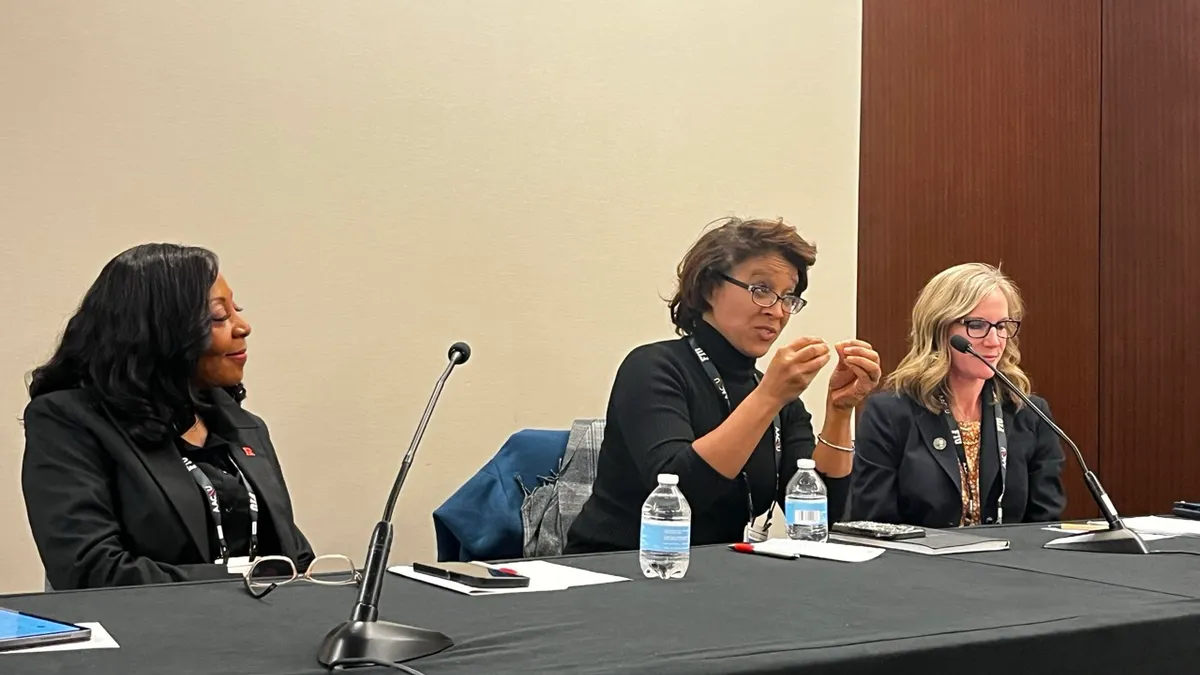Dive Brief:
- Professors from Stanford University and, formerly, Northwestern University and the University of Texas, have won the 2014 Golden Goose Award for research that enabled the Federal Communications Commission to auction spectrum licenses.
- The federally funded research may not have seemed to have much of a practical application initially, but later provided major benefits to society.
- The research on game theory and auctions by professors Robert Wilson, Paul Migrom, and Preston McAfee led to 87 FCC auctions starting in 1994 that raised more than $60 billion and allowed wireless technologies to proliferate. Their auction process has also been used for telephone numbers, emissions permits, and natural contacts.
Dive Insight:
The Golden Goose Award was created by the Association of American Universities, the Association of Public and Land-grant Universities, and other higher education and science organizations to make a political point in the face of annual budget battles over federal funding for science. It was proposed when the Golden Fleece award was garnering publicity for federally funded projects — often peer-reviewed science — labeled as wasteful in part because of odd-sounding names.












